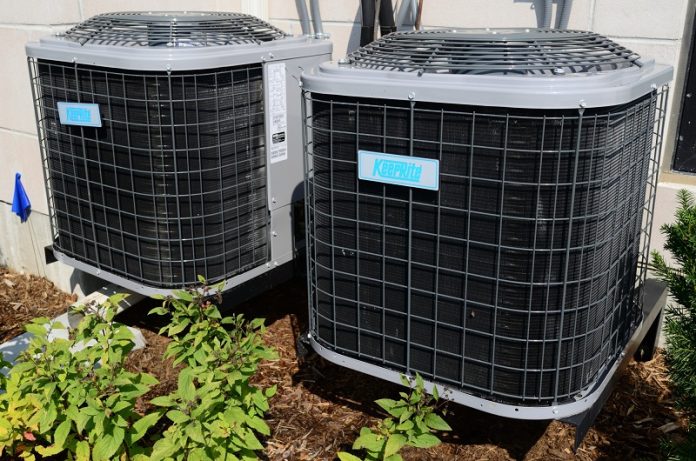Air conditioners are necessary in order to keep your space comfortable in the sweltering summer months. You never know when the next big heatwave is going to come.
They’re also energy monsters. Air conditioners use up about 6% of the total energy in the United States. Some people get the wrong size or it’s not the right unit for the space.
Buying an air conditioner isn’t easy, but this guide makes it easier. Read on to find out exactly what you need to watch for when you’re buying air conditioners.
Table of Contents
HVAC Systems
Did you know that HVAC means heating, ventilation, and air conditioning? Yep, this unit does it all! This is also referred to as central air, which is a term you’ve likely heard before.
With this type of unit, the air is brought in from outside, cooled down in a central space like a furnace. The cool air travels through ducts and filters into individual rooms.
The type of energy that’s used depends on the unit. Some will use gas, while others use electricity. The advantage of having an HVAC unit is that one unit can heat and cool your entire home.
That’s enough to keep you comfortable all year long. You’ll want to invest in HVAC services to make sure the unit is properly maintained. That will help you keep the unit in top shape and avoid unnecessary repairs.
Portable A/C Units
Portable air conditioners are small units on wheels, similar to portable heating units. These are great to have because they’re inexpensive compared to other options and you can take them from place to place.
These units are typically good for a small space, like one room that gets warmer than other rooms in the house. An office that gets a lot of sunlight could benefit from this type of unit.
Portable air conditioner is also used in places where you can’t install an HVAC unit or have a window air conditioner.
Window Air Conditioners
A window air conditioner is the most common type of A/C unit. They also come in different sizes, depending on how much space needs to be cooled.
The smallest units can cool a space up to 300 square feet. A medium-sized air conditioner can cool up to 400 square feet.
A large unit can cool up to 650 square feet. The size of the unit can make it hard to install. It’s heavy and you have to find a window in your home that can support the size and weight of the unit.
The costs go up with the size of the unit. A small unit is usually less than $300 and consumes the least amount of energy. A larger unit can cost about $600 and will consume a tremendous amount of energy.
Buying an Air Conditioner
Now that you know about the types of air conditioners on the market, let’s take a look at the things you have to consider when you’re shopping for an air conditioner.
Assessing Your Space
You also need to consider any regulations in your home. For example, if you’re renting your home, a landlord may not be willing to install an HVAC unit. Some homeowner’s associations have rules about A/C units sticking out the window.
You’ll want to ask those questions first and get them out of the way. You may learn that you can only have a portable air conditioning unit.
What is the size of the space that you need to cool? If you are getting a window unit, you’ll need to measure the size of the window and the size of the room.
Measure the width, length, and height of each room that needs to be cooled. You’ll also need to factor in additional heat.
Your kitchen will get hotter when the stove is on. There may be rooms in your home that get more sunlight than others, too.
Making Calculations
You have to pick the right size of the unit and this is a crucial step in getting the right air conditioner. Window and portable units are measured in British Thermal Units. That’s a measurement that shows how much energy it takes to raise the temperature of 1 pound by 1 degree.
For a 300 square foot space, you need an 8,000 BTU unit. A room of up to 150 square feet needs a unit that’s only 5,000 BTUs.
HVAC units work a little differently. They’re measured in tons, rather than BTUs. Generally speaking, you want to have an HVAC unit that’s one ton for every 600 square feet.
For example, if you have a 2400 square foot home, you want to install a 4-ton unit.
You’ll want to look for additional features such as energy efficiency, filter change notifications, and noise.
Buying an Air Conditioner Made Easy
Buying an air conditioner can be a daunting experience. You have to make sure that you’re getting a unit that’s energy-efficient and fits the room.
If you get an A/C unit that’s too small, your space simply won’t cool down. A unit that’s too big will eat up your wallet in energy costs.
You have to understand the different types of units and the advantages of each and measure your space. Once you get the right unit with the right features, you can take it home or have it installed.
For more great real estate tips, be sure to visit this site again.



















